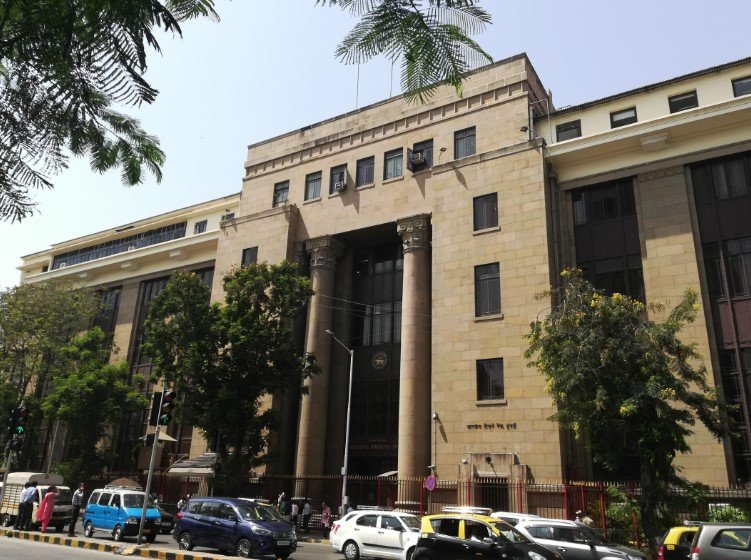Uttar Pradesh and Haryana-based lenders pulled up for flouting key supervisory rules
The Reserve Bank of India has slapped monetary penalties on two cooperative banks—one in Uttar Pradesh, the other in Haryana—for failing to stick to its supervisory framework and credit reporting norms. The fines may be small, but the message is loud and clear: follow the rules or face the consequences.
On July 30, India’s central bank announced that it had fined Gomti Nagariya Sahakari Bank Ltd. in Jaunpur ₹2 lakh for breaching guidelines under the Supervisory Action Framework (SAF). On the same day, it also penalized the Sonepat Central Cooperative Bank Ltd. ₹25,000 for not signing up with Credit Information Companies as required.
SAF Breach in Uttar Pradesh Draws Sharper Penalty
Gomti Nagariya Sahakari Bank, headquartered in eastern Uttar Pradesh, got the bigger rap. According to the RBI, the bank didn’t adhere to measures prescribed under the SAF—a framework meant to guide troubled banks toward stability.
The SAF isn’t just paperwork. It’s the Reserve Bank’s way of nudging weak banks to get their act together—step by step.
This is the part where the penalty stings a little more. Not in the amount, but in the implication. A ₹2 lakh fine may not break the bank, but it clearly signals that the RBI thinks Gomti Nagariya has been slacking where it matters most: operational discipline.
One senior official familiar with the matter said, “These aren’t minor clerical lapses. SAF violations usually mean the bank hasn’t met risk thresholds or hasn’t implemented action plans.”
That kind of laxity can lead to bigger trouble down the road.

Haryana Lender Pulled Up Over Credit Information Compliance
Compared to the Jaunpur case, the Sonepat Central Cooperative Bank’s violation seems administrative on the surface. But it has broader implications for customer rights and data transparency.
The bank failed to comply with RBI’s instruction requiring cooperative banks to become members of Credit Information Companies (CICs). This might sound like bureaucracy—but it’s a consumer issue at heart.
When banks don’t sign up with CICs:
-
Customers’ credit histories remain incomplete or invisible
-
Loan approvals become less data-driven
-
Risk to the banking system quietly builds up
The RBI cited provisions under Section 25 read with Section 23 of the Credit Information Companies (Regulation) Act, 2005 to justify the ₹25,000 fine. It’s a light penalty, sure. But it flags an issue that affects borrowers and lenders alike.
Just one line here to pause and breathe.
Penalties May Be Small, But the Warning Isn’t
At first glance, a ₹2 lakh and ₹25,000 fine won’t grab headlines like a big bank fraud case. But there’s more going on.
The RBI rarely acts in a vacuum. These actions are often the result of deeper inspections, months of correspondence, and ignored warnings. The fact that the RBI went public with these penalties suggests it wants others to take note.
There’s also a wider shift happening. In its June 2025 Financial Stability Report, the RBI had a surprisingly upbeat tone on Urban Co-operative Banks (UCBs). It praised reforms, better capital adequacy, and improving compliance.
And then this.
The penalties make it clear: even as the sector improves, the regulator isn’t letting anyone off the hook.
Here’s a look at the penalty details in a nutshell:
| Bank Name | Location | Violation Type | Penalty Amount |
|---|---|---|---|
| Gomti Nagariya Sahakari Bank Ltd. | Jaunpur, Uttar Pradesh | Non-compliance with Supervisory Action Framework | ₹2,00,000 |
| Sonepat Central Cooperative Bank Ltd. | Sonepat, Haryana | Failure to join Credit Information Companies | ₹25,000 |
RBI Walks Tightrope Between Reform and Regulation
The co-operative banking sector in India has had its share of trouble—some of it messy, some outright embarrassing. Think PMC Bank. Think the Sahara saga. Trust, once broken in this space, takes a long time to rebuild.
That’s why the RBI’s balancing act is so tricky.
On one side, it’s trying to give space to these banks to grow, serve rural and semi-urban markets, and offer credit access where larger commercial banks don’t reach.
On the other hand, it needs to keep them in check. Hard.
In the last two years, the RBI has introduced more stringent auditing standards, nudged co-op banks to digitize, and even allowed them limited access to capital markets.
But compliance still remains a mixed bag.
One sentence paragraph? Why not.
Why This Matters Even If You’re Not a Customer
You might be wondering—why should anyone care about fines slapped on two regional banks with limited footprint?
Here’s why:
-
Cooperative banks handle a large chunk of agricultural and MSME lending, especially in tier-2 and tier-3 cities.
-
Their risk management practices directly affect credit health in rural India.
-
Every time one of them fails or flouts rules, depositors lose trust—and often money.
India has over 1,500 urban co-op banks and nearly 100,000 rural ones. While reforms are ongoing, cracks like these show that vigilance can’t take a back seat.
Some analysts believe the RBI’s approach has grown more assertive after 2020’s string of co-op banking crises. These penalties—however small—are part of that shift.







